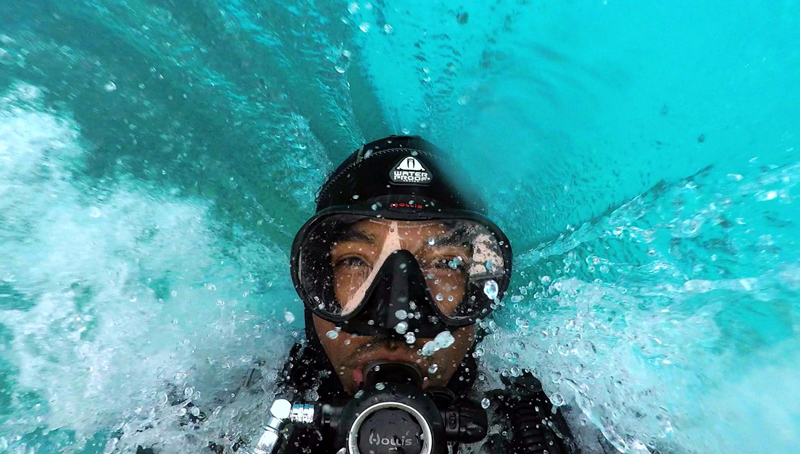Smithsonian Interviews Weldon Wade
Smithsonian has interviewed Bermudian Weldon Wade about his experiences diving off the coast of the island, highlighting his efforts to “capture Bermuda below the surface.”
The story says, “Weldon Wade spends most of his time underwater. When he’s not working as a commercial diver off the coast of Bermuda, he’s strapping on his mask and fins and diving to astounding depths as a free diver, holding his breath for three-plus minutes at a time, relying on the air in his lungs for survival.
“Spending that much quality time below the surface has made him a big proponent of protecting our oceans, and over the past decade he’s become an active member of Bermuda’s conservation community, founding multiple organizations that defend and nurture sea life, including Guardians of the Reef, a diving organization that promotes conservation, education and research, and his newest venture, 16 Fathoms, a project that will study 16 sites along the island’s South Shore and conduct stereoscopic video surveys of each using live video streaming. He hosts invasive lionfish tournaments and beach and bay clean-up events.”
“And the best part: He captures all of his underwater adventures on Instagram for the rest of the world to see. Smithsonian.com caught up with Wade to discuss his conservation efforts, underwater photography and the best diving spots in Bermuda.”
When asked how he got into free diving, and what sets it apart from scuba diving, Mr. Wade said, “My diving journey began about 13 or 14 years ago with scuba diving. It was a bucket list item of mine, so I got certified because I wanted to get more Bermudians into scuba diving. I segued into free diving a couple years after that when I made some friends who were keen to spearfish and hunt lobsters, and you can’t do that scuba diving in Bermuda. I’ve been snorkeling my entire life, and I became a certified free diver in 2014.
“Just like the name says, there’s a freedom to free diving. Once you recognize that you can dive down silently and engage with sea life without being noisy, that starts to evolve into a bit of a self-competition in the sense of wanting to stay underwater longer or in some cases go deeper. And that leads most people into training to become a better diver, to have better breath hold, to get to know your body better and to have better in-water experiences with sea life.
“With scuba diving you can take your time, but in free diving you don’t have that luxury, so there are different metaphysical things that happen with your body. With scuba, you’re breathing oxygen from a cylinder, but in free diving you’re using one breath, so you don’t have to worry about nitrogen buildup in your body.”
You can read the full story on the Smithsonian website.
Read More About
Category: All


